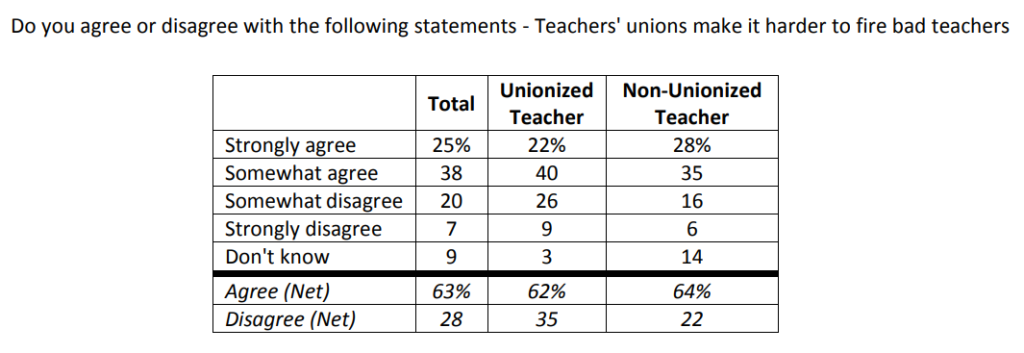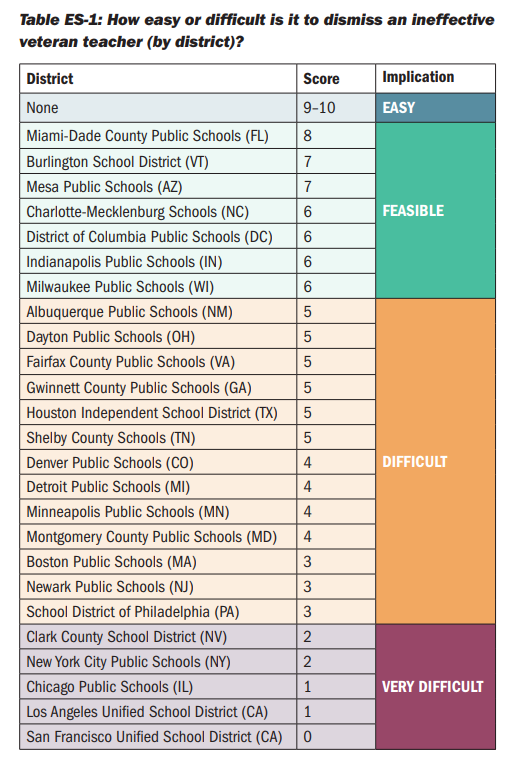Teachers Agree: Teachers’ unions make it ‘harder to fire bad teachers’
One reoccurring criticism of teachers’ unions is that they protect “bad” teachers—those “how are you still here?” teachers.
But do teachers themselves share this same perception? According to a recent poll, they do.
In partnership with NPR, Ipsos—a market research company—conducted an online poll early April to examine the views of more than 500 K-12 teachers across America. The sample included 226 unionized teachers and 258 non-unionized teachers who were randomly drawn from Ipsos’s online panel (more on Ipsos’s online polling methodology here).
As Mike Antonucci pointed out in his article on the survey, there is “plenty of good stuff” we can learn from this sampling of our nation’s educators.
For one, both unionized teachers (62 percent) and non-unionized teachers (64 percent) agreed that teachers’ unions make it harder to fire bad teachers.

Union-negotiated employment policies grant tenure to teachers after a probationary period of about three years. Teacher tenure—or “due process protection”—is often cited as the reason why removing ineffective teachers from the classroom is so difficult. Very rarely will teachers with tenure be dismissed over poor performance in the classroom. Plus, the process to fire an ineffective tenured teacher remains difficult and complicated.
Even if a district does decide to pursue a performance-based dismissal, red tape can impede the process, and the union is likely to intervene and file a grievance against these grounds for dismissal, citing it as a possible violation of the union bargaining agreement.
A study by the Fordham Institute analyzed how hard it is to dismiss ineffective veteran teachers in 25 diverse districts, including Minneapolis Public Schools.

“Though it is easier to dismiss an ineffective veteran teacher in Minneapolis Public Schools than in some districts, the process remains difficult. Once teachers are granted tenure, dismissal is extremely vulnerable to challenge (though the timeline for dismissal [in Minneapolis] is reasonable in theory),” the report stated. “To be clear, teachers have a legitimate interest in due process. But they shouldn’t be entitled to undue processes that make them impossible to fire if the established process has been followed and they have been evaluated as ineffective in the classroom.”
Teacher quality is a vital determinant of student achievement. There is a way to keep good teachers and remove inadequate ones. But the status quo needs to change first. And teachers are calling out the union for getting in the way.